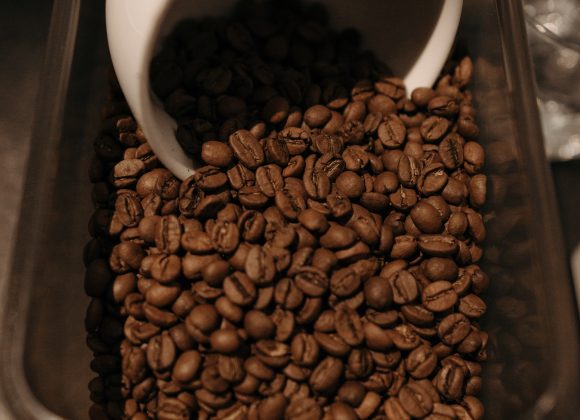Love it or hate it black coffee is a beverage that can be found in nearly any country on earth. Despite black coffee being very bitter in its purest form, it is often used as the key base ingredient for numerous coffee-based drinks.
Black coffee also comes with a number of health benefits and potential side effects that you need to know. Today, we’ll be looking at what exactly is black coffee, how to make it, and what upsides and downsides does drinking it has.

What Is Black Coffee?
Black coffee is the liquid you get after brewing roasted coffee beans. It is often considered the most basic coffee drink since it is fairly simple to make; just ground the coffee beans and soak them in water.
This coffee is often served for breakfast and provides a great caffeine boost to energise you through the day. It is traditionally served hot, but you can also opt for iced black coffee. A lot of people also prefer to add additives, such as sugar and milk, to their black coffees in order to reduce bitterness and enhance flavour.
How To Make Black Coffee?
Start by using a coffee grinder to grind your coffee beans. If you don’t have access to a grinder, you can purchase ground coffee from coffee shops or the supermarket. It may also take a few trials and errors for you to find what grind size and grind time suits your tongue.
Once you have your coffee ground, there are a few ways that you can choose to brew it:
- French Press: mix your coffee ground with hot water in the French Press. Then, use the plunger of your French Press to push down and force the residual coffee ground downwards while the brewed coffee rises to the top.
- Pour Over: one of the simplest methods to brew black coffee, you simply need to put your ground coffee in a paper filter and pour hot water into it. Make sure to place a glass or other container below it to catch the dripping coffee.
- Coffee Pods: automatic coffee machines, such as those made by Nespresso, often have coffee pods that already contain coffee ground. Simply put the coffee pod in the machine and turn it on.
- Cold Brew: you can create a strong coffee concentrate by submerging your ground coffee in cold water and placing it in the fridge for a few hours. For more cold brewing tips and techniques, check out our guide here.
- Percolator: using a specialised pot with 2 chambers, insert your coffee and water into the pot and place it on top of the stove. Once the water starts to boil, it will be forced up through the ground coffee and the resulting coffee liquid will be collected in the upper chamber.
Benefits Of Black Coffee
A number of studies over the years have shown that black coffee carries a lot of benefits.
One of those studies showed that black coffee is a great source of antioxidants. For those who have never heard of this substance, antioxidants help fight aggressive cancer cells in your body. Thus, drinking black coffee in the long term can reduce your risk of developing cancer.
Another benefit that you can reap by drinking black coffee regularly is that it reduces the risk of diabetes. The caffeine and chlorogenic acid in black coffee help regulate blood glucose levels and protect you against type 2 diabetes. However, if you add sugar to your coffee, this benefit will potentially be cancelled out.
Lastly, black coffee can elevate your concentration and improve your mood. This is why a lot of people drink coffee first thing in the morning. It not only increases your alertness and reduces your reaction time, but it also helps remove tiredness and get rids of headaches!
Possible Side Effects Of Black Coffee
The many benefits of coffee do not mean that you should consume it carelessly. You should only drink a moderate amount of caffeine each day or you risk developing insomnia, stomach problems, anxiety, or even nausea.
Researchers found that the ideal caffeine intake per day to be about 400 mg, while those breastfeeding, pregnant, or have underlying diseases should stick to less than 200 mg. You can talk to a healthcare professional if you are not sure how much coffee you can drink.




